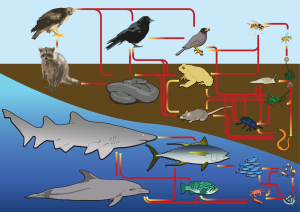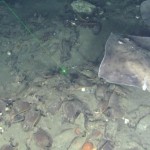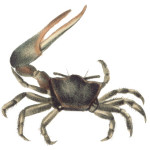1.01 billion users.
Damn…that Zuckerberg guy really hit gold with the whole “Facebook” thing didn’t he?

What is it about Facebook though? What makes it so enticing that over one-seventh of the global populace decided to jump on the social media bandwagon? Oddly enough, I think the answer is quite simple and right on the front page.
“Connect with friends and the world around you on Facebook.”
Whoomp! There it is….
Connect.
As a society we thrive on our connections. This is why social platforms such as Facebook, Twitter, hell even the Internetz itself, have flourished. They provide an instantaneous tie in which one can network and find community with the rest of the world.

Source: Intel
Despite a society so “virtually linked,” I find it perplexing that we have seemingly lost our sense of environmental connectivity. What do I mean by this? In general, we have developed this diluted misconception that our actions do not directly affect the natural world around us. Now this is nothing new, I am not making some profound observation about the state of the planet. However, what I am interested in is where does this start? This disassociation between the greater ecosystem and ourselves.

Source: Wikimedia Commons
Perhaps, it originates with our upbringing? Did your parents instill the importance of nature in your household? Maybe we can even take it back to our high school biology classroom. Remember when you were first learning about food webs and the flow of energy through an ecosystem? What is the one component that is never on those nifty little charts yet plays perhaps the biggest role in driving many ecological interactions? Or perhaps we live in a society so driven to get to the ahead that it will disregard any environmental consequence to get there and that nothing else even matters. <-Likely.
Regardless, in many indigenous cultures, the ideology of environmental connectivity has become engrained in cultural identity. These ancient peoples directly rely on the surrounding environment to sustain life and subsequently realize that the health of the environment is not only their responsibility, but also essential to their survival. They understand this connection and such knowledge is passed down through the generations. Thus we must ask ourselves what are we engraining? What idea of connectivity are we passing on? We have become masters of cultivating our social ties and connections to the people around us, but are we cultivating that same connection with our environment?
Ecologically this “Environmental (Dis)Connect” presents a problem for the current and future health of so many ecosystems. If society remains on this current path, our own environment is likely to “de-friend” us. So what do we do about it?
My colleagues and I have frequently discussed this topic the past couple of months in regards to our role within the local and global community. As scientists, we feel that this is in part our responsibility to educate the general public on the importance of environmental connectivity. As one who is always interested in the use of film to get a message across, here is the first look at what we came up with. This film looks to serve a two-fold purpose: 1) to connect with our community and give them a glimpse of our marine lab and what we actually do there (Yay Science!) and 2) to instill in them the importance of our critical connection with the environment at large.





